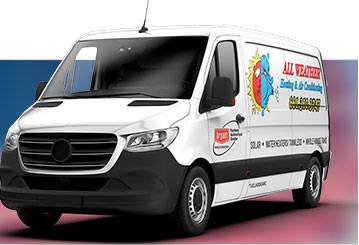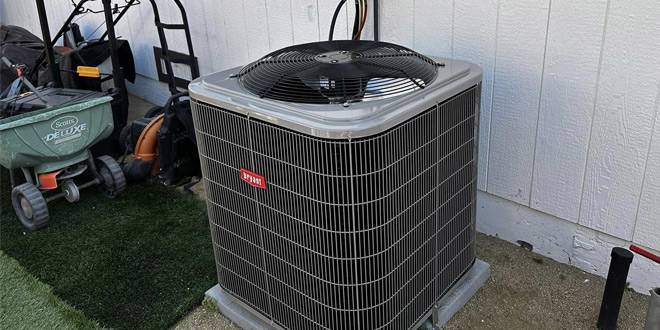
Investing in an air conditioning unit is a significant decision for any homeowner. Understanding the cost involved can help you make an informed choice that balances your budget with your comfort needs. Various factors influence the price of an AC unit, from the type and size to energy efficiency and installation costs. In this guide, we’ll break down these factors to give you a clear picture of what to expect when purchasing a new AC unit.
Ready to dive into the details? Let’s explore the various aspects that affect AC unit costs and how you can find the best deal for your home. 🌞❄️
Factors Affecting AC Unit Costs
When it comes to purchasing an AC unit, several factors influence the overall cost. Understanding these can help you make a more informed decision and ensure you get the best value for your money. Here are the key factors to consider:
- Type of AC Unit
- Different types of AC units, such as window units, portable units, split-systems, and central AC systems, have varying price points. Each type has its own set of features and installation requirements, impacting the overall cost.
- Size and Capacity
- The size and cooling capacity of an AC unit, measured in BTUs (British Thermal Units), directly affect its price. Larger units designed to cool bigger spaces cost more than smaller, less powerful units.
- Energy Efficiency Ratings
- Units with higher SEER (Seasonal Energy Efficiency Ratio) ratings are generally more expensive upfront but can lead to significant savings on energy bills over time. Investing in an energy-efficient model can be cost-effective in the long run.
- Brand and Quality
- The brand you choose can also impact the cost. Well-known brands with a reputation for quality and reliability may come with a higher price tag but often offer better performance and durability.
- Installation Costs
- Professional installation is crucial for optimal performance and safety. Installation costs can vary based on the complexity of the installation, the type of unit, and the layout of your home.
- Additional Features
- Modern AC units come with a variety of additional features, such as smart thermostats, air purifiers, and programmable settings. While these can enhance comfort and convenience, they also add to the overall cost.
Understanding these factors can help you budget more effectively and choose an AC unit that meets your specific needs. For more detailed information on air conditioning options, check out our Vacaville Air Conditioning page.
Types of AC Units and Their Costs
Choosing the right type of AC unit is crucial for both your comfort and budget. Here’s a breakdown of the different types of AC units available and their typical costs:
| Type of AC Unit | Cost Range | Description | Pros | Cons |
| Window AC Units | $150 – $700 | Installed in a window or a specially made hole in a wall. Ideal for cooling single rooms. | Easy to install, low upfront cost. | Limited to single-room cooling, can block windows. |
| Portable AC Units | $200 – $800 | Can be moved from room to room, typically with a hose that vents out a window or through a wall. | Mobility, easy installation. | Less efficient, requires window access for venting. |
| Split-System AC Units | $2,000 – $5,000 | Consists of an indoor and an outdoor unit. Known for energy efficiency and consistent cooling. | Quiet operation, efficient cooling. | Higher installation cost, requires professional installation. |
| Central AC Units | $3,000 – $7,000 | Designed to cool entire homes by distributing air through ducts. | Whole-home cooling, high efficiency. | Expensive installation, requires ductwork. |
| Ductless Mini-Split Systems | $1,500 – $4,500 | Similar to split systems but without the need for ductwork. Ideal for homes without existing ducts. | Flexible installation, energy-efficient. | Higher upfront cost compared to window units. |
Choosing the right type of AC unit depends on your specific cooling needs, budget, and home layout. For professional advice and installation services, visit our Vacaville AC Installation page.
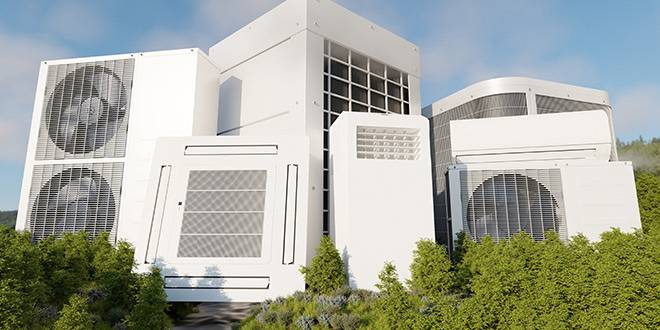
Installation Costs
The cost of installing an AC unit can vary widely based on several factors. Proper installation is crucial for ensuring your system operates efficiently and effectively. Here are the main factors that can affect installation costs:
- Professional Installation vs. DIY
- Professional Installation: Hiring a professional ensures that your AC unit is installed correctly and safely. While this adds to the initial cost, it often prevents future issues and prolongs the lifespan of your system. Professional installation typically costs between $1,000 and $3,000, depending on the complexity of the job.
- DIY Installation: Some homeowners opt for DIY installation to save money. However, this is generally only recommended for simpler units like window or portable ACs. Improper installation can lead to inefficiency, frequent breakdowns, and safety hazards.
- Complexity of the Installation
- The complexity of the installation process can significantly impact costs. Factors include the type of AC unit, the layout of your home, and the need for additional ductwork or electrical upgrades. More complex installations, such as central AC systems, require more labor and time, leading to higher costs.
- Type of AC Unit
- Different AC units have varying installation requirements. For example, installing a central AC system is more labor-intensive and time-consuming compared to a window unit. Here’s a rough estimate of installation costs by type:
- Window AC Units: $100 – $300
- Portable AC Units: $100 – $300
- Split-System AC Units: $500 – $2,000
- Central AC Units: $1,200 – $3,500
- Ductless Mini-Split Systems: $800 – $2,500
- Different AC units have varying installation requirements. For example, installing a central AC system is more labor-intensive and time-consuming compared to a window unit. Here’s a rough estimate of installation costs by type:
- Home Layout and Size
- The size and layout of your home can affect installation costs. Larger homes or those with complex layouts may require more extensive ductwork or multiple units, increasing the overall cost.
- Additional Services
- Additional services such as removing old units, installing new ductwork, or upgrading electrical systems can add to the installation cost. These services ensure your new AC unit operates safely and efficiently.
Investing in professional installation ensures that your AC unit functions optimally and lasts longer. For expert installation services, visit our Vacaville AC Installation page.
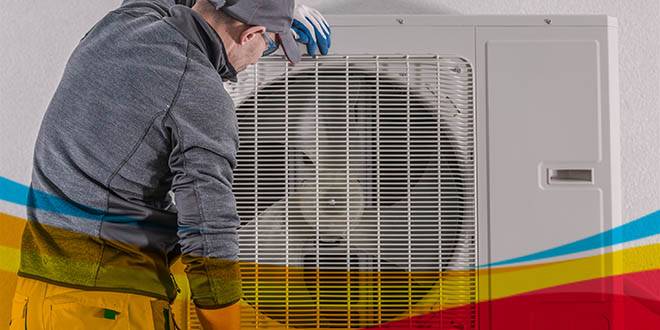
Energy Efficiency and Long-term Savings
Investing in an energy-efficient AC unit can lead to significant long-term savings on your energy bills. Here’s why energy efficiency matters and how it can benefit you:
- Importance of Energy-efficient Models
- SEER Ratings: The Seasonal Energy Efficiency Ratio (SEER) rating measures an AC unit’s efficiency. Higher SEER ratings indicate greater efficiency, meaning the unit uses less energy to cool your home. While units with higher SEER ratings might cost more upfront, they can save you money over time.
- Environmental Impact: Energy-efficient models reduce your carbon footprint by consuming less electricity. This is beneficial for the environment and helps you contribute to a greener future.
- Potential Savings on Energy Bills
- Lower Monthly Costs: Energy-efficient AC units use less electricity, leading to lower monthly energy bills. Over the lifespan of the unit, these savings can be substantial.
- Rebates and Incentives: Many utility companies and government programs offer rebates and incentives for purchasing energy-efficient appliances. These can help offset the initial cost of the unit and make an energy-efficient model more affordable.
- Features of Energy-efficient AC Units
- Variable Speed Motors: These motors adjust the cooling output based on the temperature needs of your home, leading to more efficient operation and lower energy use.
- Smart Thermostats: Many modern AC units come with smart thermostats that allow you to control the temperature remotely. This feature helps optimize cooling and reduces unnecessary energy consumption.
- Enhanced Insulation: Improved insulation in modern AC units reduces energy loss, ensuring more efficient cooling.
- Long-term Benefits
- Increased Property Value: Homes with energy-efficient appliances, including AC units, often have higher property values. Energy efficiency is a desirable feature for potential buyers.
- Extended Lifespan: Energy-efficient models tend to have longer lifespans due to their advanced technology and better build quality. This means fewer replacements and repairs over time.
Choosing an energy-efficient AC unit is an investment in your home’s comfort and your future savings. For more information on energy-efficient options and how they can benefit you, check out our Vacaville AC Maintenance page.
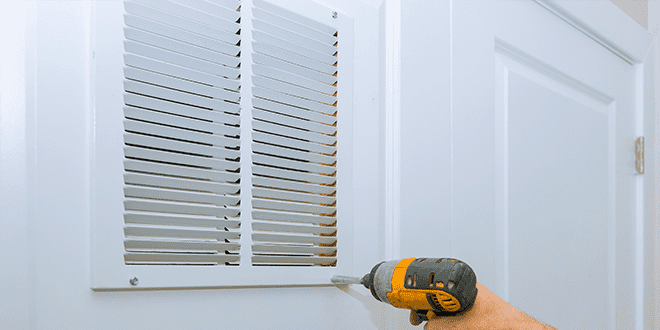
Maintenance and Repair Costs
Proper maintenance and timely repairs are essential to keep your AC unit running efficiently and to avoid costly breakdowns. Here’s a look at what you can expect in terms of maintenance and repair costs, and how to manage them effectively:
- Regular Maintenance Expenses
- Annual Maintenance Checks: Regular maintenance, typically performed once or twice a year, helps ensure your AC unit operates efficiently. Professional maintenance services usually cost between $100 and $200 per visit and include cleaning filters, checking refrigerant levels, and inspecting the system for potential issues.
- Filter Replacement: Replacing or cleaning air filters is one of the most straightforward maintenance tasks but also one of the most important. Filters should be replaced every 1-3 months, depending on usage and manufacturer recommendations. Replacement filters typically cost between $10 and $50 each.
- Common Repair Costs
- Refrigerant Leaks: Repairing a refrigerant leak can cost between $200 and $1,500, depending on the severity of the leak and the type of refrigerant required.
- Thermostat Repairs: Fixing or replacing a malfunctioning thermostat can range from $100 to $500, depending on whether it’s a basic model or a smart thermostat.
- Compressor Repairs: The compressor is a critical component of your AC unit. Repairing or replacing it can be costly, typically ranging from $1,200 to $2,500.
- Electrical Issues: Electrical problems, such as faulty wiring or capacitor issues, can cost between $100 and $500 to repair, depending on the complexity of the issue.
- How to Minimize Repair Costs
- Regular Maintenance: Scheduling regular maintenance can help catch potential problems early, preventing costly repairs down the line. Well-maintained units are less likely to experience significant issues.
- Prompt Repairs: Addressing minor issues promptly can prevent them from escalating into major problems. If you notice any unusual noises, reduced cooling efficiency, or other signs of trouble, contact a professional immediately.
- Use Quality Parts: When repairs are necessary, using high-quality replacement parts can ensure the longevity and performance of your AC unit.
- Maintenance Plans
- Benefits of Maintenance Plans: Many HVAC companies, including All Weather Heating & Air Conditioning, offer maintenance plans that provide regular service visits at a discounted rate. These plans often include priority service, discounts on repairs, and extended warranties.
- Peace of Mind: A maintenance plan ensures that your AC unit receives the care it needs to operate efficiently year-round, reducing the likelihood of unexpected breakdowns.
Regular maintenance and timely repairs are key to extending the lifespan of your AC unit and keeping it running efficiently. For reliable maintenance and repair services, visit our Vacaville AC Repair page.

Financing and Special Offers
Investing in a new AC unit or major repairs can be a significant expense. Fortunately, there are various financing options and special offers available to help make these costs more manageable. Here’s how you can take advantage of them:
- Available Financing Options
- Flexible Payment Plans: Many HVAC companies offer financing options that allow you to spread the cost of a new AC unit or significant repairs over several months or years. These plans often come with low or no interest rates, making them an attractive option for homeowners.
- Credit Card Financing: Some homeowners choose to use credit cards to finance their AC purchases. This can be a convenient option if your card offers low interest rates or if you can pay off the balance quickly to avoid high interest charges.
- Home Equity Loans: Using a home equity loan or line of credit can provide funds for large HVAC expenses at relatively low interest rates. This option is suitable for those with significant equity in their homes.
- Current Promotions and Discounts
- Seasonal Sales: HVAC companies often run promotions during off-peak seasons (spring and fall) when demand for AC units is lower. Taking advantage of these sales can lead to significant savings.
- Manufacturer Rebates: Many AC manufacturers offer rebates on specific models, especially energy-efficient units. These rebates can reduce the overall cost by hundreds of dollars.
- Utility Company Incentives: Check with your local utility company for any available incentives for purchasing energy-efficient AC units. These incentives can include rebates or bill credits.
- Maintenance Plan Discounts
- Bundled Services: Some companies offer discounts when you sign up for maintenance plans that include regular service visits, priority scheduling, and discounts on repairs. This can be a cost-effective way to ensure your AC unit stays in top condition.
- Referral Discounts: Many HVAC companies provide discounts or credits when you refer a friend or family member who purchases a new AC unit or signs up for a maintenance plan.
- Tax Credits and Incentives
- Federal Tax Credits: The federal government offers tax credits for energy-efficient home improvements, including certain types of AC units. These credits can help offset the initial cost.
- State and Local Incentives: Depending on your location, there may be additional state or local incentives available for installing energy-efficient HVAC systems. Check with your state’s energy department or local government for more information.
Taking advantage of these financing options and special offers can make purchasing a new AC unit or scheduling major repairs more affordable. For more details on current promotions and financing options, visit our Contact Us page.
Conclusion
Understanding the cost of an AC unit involves considering various factors, including the type of unit, installation, energy efficiency, and ongoing maintenance. Each of these elements contributes to the overall expense, but by making informed choices, you can find a solution that fits both your budget and your comfort needs.
Investing in an energy-efficient model and scheduling regular maintenance can lead to significant long-term savings. Additionally, taking advantage of financing options, promotions, and tax incentives can make the initial investment more manageable.
Whether you’re considering a new AC unit or need professional advice on maintaining your current system, All Weather Heating & Air Conditioning is here to help. Our team of experts is dedicated to providing top-notch service, ensuring your home stays comfortable year-round. For personalized quotes and expert guidance, visit our Contact Us page.
Thank you for choosing All Weather Heating & Air Conditioning. We’re committed to keeping you cool and comfortable, no matter the weather! 🌞❄️

